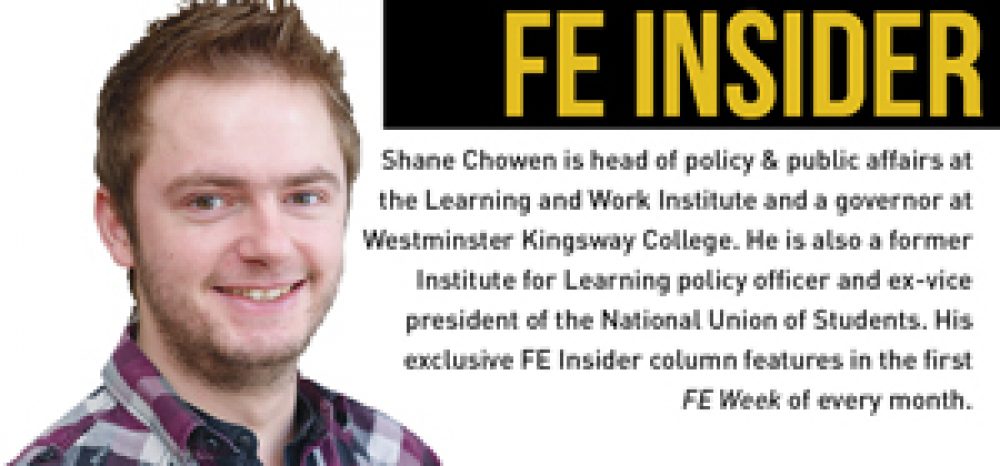Shane Chowen looks at how the upcoming local elections and devolution could affect FE.
More than 475 elections will soon be taking place throughout the UK, with thousands of candidates trying to reach millions of voters.
I was a candidate in a by-election in Milton Keynes last year (I lost).
It’s exhausting, but also exciting, because once you’re over that initial apprehension about knocking on the doors of complete strangers, people are generally respectful of the fact you’re putting yourself out there.
Generally. I was desperate for a doorstep conversation about adult education, or apprenticeships or lifelong learning. It never happened.
This year’s elections feel somewhat overshadowed by peripheral but more dominant political issues, most notably the upcoming referendum on the UK’s membership on the European Union, which is dividing political parties as well as the public.
Demanding even more power from central government is a common theme
Because of this, and the potential for a lengthy, painful and dominant aftermath whatever the result, this could cause even further delays on the Government’s programme for the sector on things like the Digital Apprenticeship Service and devolution.
In some parts of the England, devolution and the introduction of new ‘Metro-Mayors’ is becoming an increasingly visible and divisive issue, particularly in the largely rural and Conservative parts of the country whose devolution deals were announced at the Budget — places like West of England, East Anglia and Greater Lincolnshire.
Local MPs are beginning to get tetchy about losing power to a new type of local politician with a larger electoral mandate.
So with a make or break referendum casting doubt over the very fundamentals of our politics, and new domestic democratic devolution developments meaning even more elections in a year’s time for some of us, is it any wonder that policy – what all these people standing for election actually want to achieve – is not easy to come by?
As no major devolution of learning and skills has taken place just yet, the sensible place to start would be the manifestos of mayoral candidates and national parties.
In the future though, even within five years, there could be mayors of Greater Manchester, Liverpool City Region, Tees Valley, West Midlands, North Midlands, Greater Lincolnshire, East Anglia and West
of England.
Hopefully this won’t trigger Game of Thrones style power trips but will mean locally tailored skills and employment policy.
In London, policy from the two main candidates for the Iron Throne at City Hall, Zac Goldsmith and Sadiq Khan, could give us some indication about what other devolved mayors could pledge to achieve in the future.
Demanding even more power from central government is a common theme throughout both candidates’ manifestos.
Sadiq Khan wants FE funding for 16-19 year olds as well as the adult education budget, while Zac Goldsmith wants powers to fund smaller courses, for example.
Both candidates have also responded to concerns around local skills gaps and are committed to establishing new groups and organisations to help tackle the problem.
Data and accountability also seem to come hand in hand with devolution.
London has led the way on open data, such as how Transport for London has made tube and bus timetables open, leading to a proliferation of new (and better) apps for people planning journeys around the capital.
Both candidates commit to more open data which could link to things like outcome agreements, learner satisfaction and earnings to provide learners and employers with better information about what and where to study.
With more flexibility and powers, more local politicians could choose to prioritise basic skills which are inhibiting local people’s access to public services.
A good example of this is in London, where both candidates have committed to establishing a chief digital officer to lead on digital inclusion, ensuring residents have the digital skills needed, and that adequate provision is on offer.
So while the elections this week won’t be game-changers for our sector, in England at least they do set the groundwork for the devolved future of FE and skills.
And of course please do all you can to ensure your staff and learners go out and vote.









Your thoughts